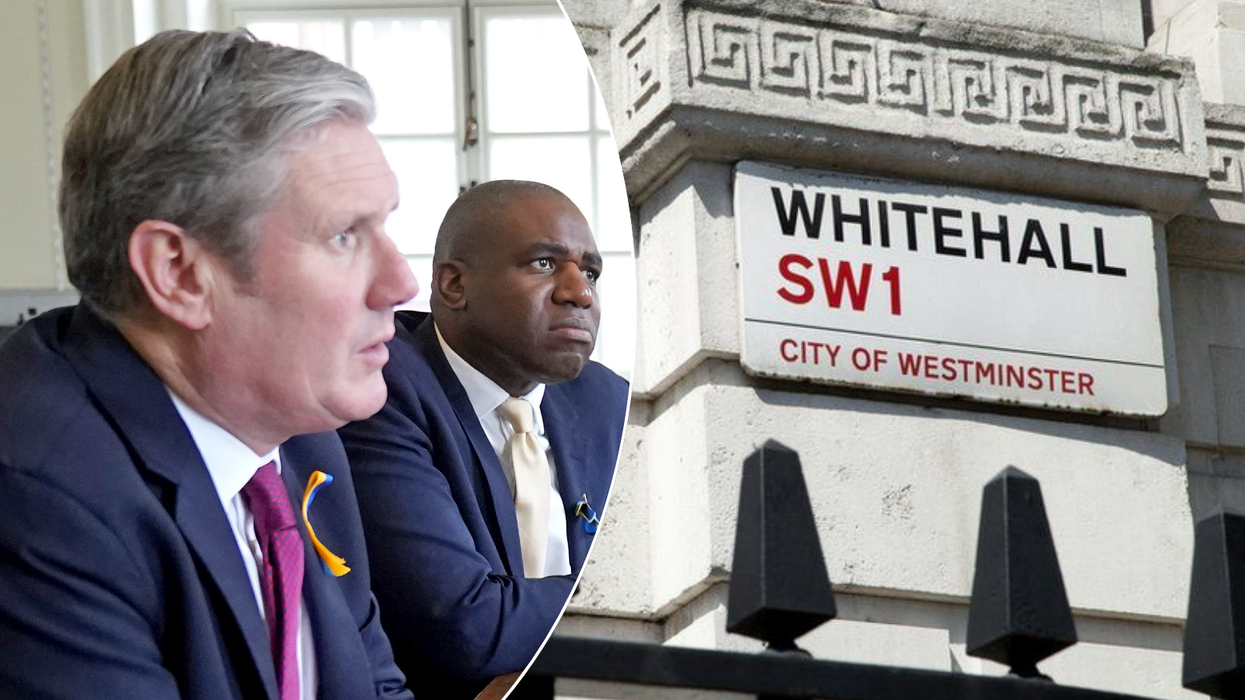Revealed: True cost of Britain's foreign aid as cash thrown at Chinese regions RICHER than the UK

British taxpayers are funding arts, infrastructure and tech projects in regions wealthier than parts of the UK
|PA

Taxes raised in 'left-behind Britain' are being funnelled towards arts projects like a Chinese all-female opera show
Don't Miss
Most Read
British taxpayers are funding arts, infrastructure and tech projects in regions wealthier than parts of the UK, a damning new study has revealed.
As part of the Government's overseas aid budget, diverted through universities and 'Quangos', Britons are shelling out for projects like an all-female traditional opera in Shanghai, a rural crafts exhibition in Shenzhen in southern China, and a temporary cycle lane in Mexico City.
Some UK Government funding is flowing towards Ordos City, also in China - a city richer than 69 regions of the UK, and one that sits in the world's second-largest economy.
Recipient cities of taxpayer-funded aid include world-class capitals like Beijing and Kuala Lumpur and Unesco-listed Campeche in Mexico, which is richer than 36 British regions.

Britons' cash is heading to world-class cities like Shanghai and Kuala Lumpur and Unesco-listed Campeche in Mexico
|Getty
British tax money is funding projects with aims including "merging historical cultural forms with contemporary artistic expressions in Shanghai" or "integrating traditional ethnic heritage crafts with modern urban economic strategies".
The cashflows, under the Foreign Office's Official Development Assistance (ODA) aid budget, were uncovered by researchers at the Institute for Economic Affairs (IEA) who labelled the spending "Robin Hood in reverse".
The IEA report, compiled by Mark Tovey, has pushed for the funds to be diverted to the world's poorest people and areas.
He said his recommendations would protect taxpayers in "left-behind Britain", who should not be paying to fund parts of the world richer than their own home.
MORE ON LABOUR'S SPENDING:

The cashflows fall under the Foreign Office's Official Development Assistance (ODA) aid budget
|Wikimedia Commons/PA

Taxpayer cash is being spent on projects like this all-female traditional Chinese opera
|Chinese Opera Festival
Tovey drew attention to projects funded by top UK universities including York, Leeds, and University College London and Quangos like Ukri - including the aforementioned opera - as an example of aid "misallocation".
He said: "Taxing hard-working people in left-behind Britain to fund projects in affluent regions abroad is a policy of Robin Hood in reverse, with aid money going to prosperous areas like Ordos in China or Campeche in Mexico - both of which are actually richer than large parts of the UK.
"We urgently need to reevaluate our aid priorities to ensure that UK taxpayers' money supports the world's poorest, focusing on stamping out infectious diseases, ending hunger, and genuinely lifting those in desperate need out of poverty."
The report has also called for an amendment to the Blair-era International Development Act 2002, which could see foreign aid ring-fenced for only those regions with a £10,914 Gross National Income (GNI) per capita.

The recommendations would protect taxpayers in "left-behind Britain"
|PA
This, the report says, "would prevent the recurrence of aid being sent to areas richer than the communities of UK taxpayers funding it", which it called "against the spirit" of the Act.
It also criticises civil servants' and aid workers' choice of aid recipients, which it says is "motivated by personal interests", and notes that public servants can be attracted to the "cultural influence and connectedness" of more affluent parts of the world.
The report suggested that "government actors and project implementers" were keener to spend British money in parts of the world with "ample amenities to be enjoyed during downtime" and better access to "academic and governmental power centres" in order to further their own "job satisfaction, pay and professional esteem".
A Foreign Office spokesman told GB News: "This report is based on allocations made under the last Government.
"This Government’s development mission is to create a world free from poverty on a liveable planet."
GB News understands that a ministerial review of the Foreign Office's ODA budget is underway, with a revised set of funding allocations, made with value for money in mind, to be released in due course.










